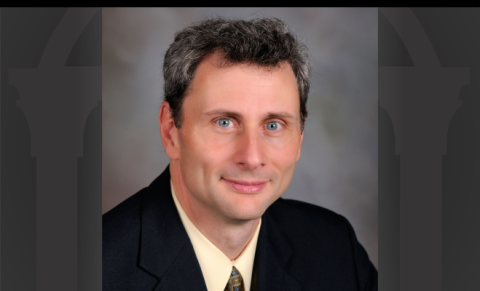event
Structural Mechanics Seminar Series
Primary tabs
"Biomolecular Smart Material Systems"
Donald Leo, PhD
Dean, College of Engineering
University of Georgia
Stimuli-responsive biomolecules form an interesting class of transducer elements for smart material systems. In our work we are studying how stimuli-responsive ion channels can be incorporated into durable networks to form smart material systems for a variety of applications in sensing, actuation, and energy conversion. Ion channels have evolved in nature to have a wide range of coupling properties such as electroactivity, mechanosensitivity, and opto-electronic coupling. Our work has demonstrated that these biomolecules can be incorporated into synthetic substrates through reconstitution into artificial bilayer membranes. The artificial membranes form a platform that enables the development of stimuli-responsive devices that transduce physical stimuli into electrical responses. We have demonstrated the ability to utilize the bilayer membrane as a nanoscale capacitor that responds to mechanical s! timuli. The physical mechanism that controls mechanoelectric coupling is the time-dependent capacitance of the bilayer. This concept has been utilized to create a device that mimics the functionality of auditory hair cells. We have also been the first to demonstrate the activity of mechanosensitive channels in an artificial 'droplet interface bilayer' system. The dynamic properties of mechanosensitive channels of large conductance (aka MscL) incorporated into interfacial bilayers have been studied, demonstrating the ability to activate these channels through proper control of bilayer surface tension. Interestingly, our work with Sergei Sukharev, PhD, (University of Maryland) has demonstrated that both electrical potential and surface tension need to be controlled to initiate mechanoelectric coupling, a property previously not known for ion channels of this type.
Donald Leo became the first permanent Dean of the University of Georgia College of Engineering on July 1, 2013 and currently holds the UGA Foundation Professorship in Engineering. The UGA College of Engineering is the newest college in the oldest state-chartered university in the nation. Formed in 2012, the college now has 1000 undergraduate and graduate students, 60 full-time faculty, instructors, and public service professionals, and 30 staff members. Prior to joining the University of Georgia he was a faculty member in the College of Engineering at Virginia Tech. He joined the faculty at Virginia Tech in 1998 as an Assistant Professor and was promoted to Associate Professor (with tenure) and Full Professor in 2002 and 2004, respectively. During his tenure at Virginia Tech he also served as a program manager at DARPA in the Defense Sciences Office (2005-2007), Associate Dean for Research and Gr! aduate Studies (2007-2011), and the Associate Vice President and Vice President of the National Capital Region (2011-2013). He has advised over 40 graduate students, authored or co-authored over 200 papers, and published a textbook in 2007. His awards include the Air Force Summer Faculty Fellowship (1997-1998), National Science Foundation Career Award (2001), Outstanding Recent Alumnus - University of Illinois, Urbana-Champgain Aerospace Engineering Department (2004), the Dean's Award for Research at Virginia Tech (2008). He is a Fellow of the American Society of Mechanical Engineers and a Member of the American Society for Engineering Education. He received his Bachelor's degree from the University of Illinois - Urbana, Champaign in 1990 and his Master's and Doctoral degrees from the University of Buffalo in 1992 and 1995, respectively.
Refreshments will be served.
Status
- Workflow status: Published
- Created by: Colly Mitchell
- Created: 03/12/2014
- Modified By: Fletcher Moore
- Modified: 04/13/2017
Categories
Keywords
Target Audience

